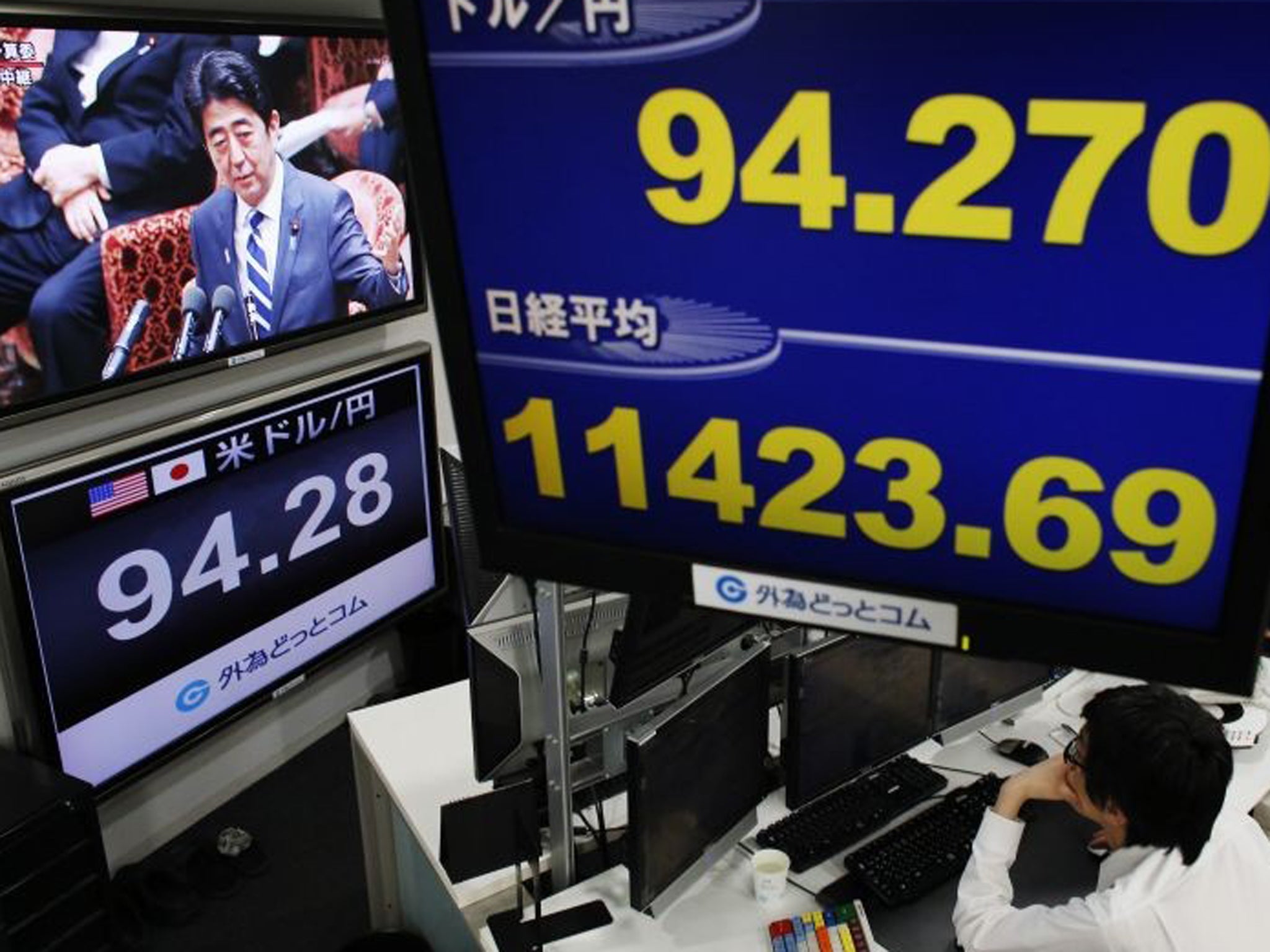Is this really Japan's year to return to the light?
The recovery has been a long time coming, so what's different this time, asks Emma Dunkley

It may be known as the land of the rising sun, but Japan has seen many false dawns for investors over the past two "lost" decades. Yet now could be the time to buy into Japan, as the election of a new prime minister marks a potentially massive change in fortune for the stagnating economy.
There has already been a turnaround over the past three months, as funds investing in Japanese equities are up nearly 15 per cent on average and are among the best performing across all regions and asset classes. With the country being home to lots of world-class companies that are looking very cheap, it would seem an opportune moment to buy.
But those who have seen such signs of promise before remain wary of the notion that the country can actually overcome its problems and deliver for investors. So is it time to get excited about Japan in the expectation that it can finally offer compelling returns, or does the old caution still apply?
"Investing in Japanese equities has been a fruitless foray into an unforgiving frontier in the past two decades," says Tom Becket at the investment manager PSigma.
"You get less grief for investing in the likes of Bangladesh and Mongolia than you do for committing capital to Japan."
However, Mr Becket believes new policies at the Bank of Japan could spell positive times ahead for equities. He says companies in the country will see profit growth above 35 per cent this year, although he believes Japanese equities are not priced for such exuberance – meaning these shares are attractively cheap and ripe for the taking.
And it's likely the uptick in Japanese shares over the past few months will continue through to the summer at least. Andrew Rose, a Japan fund manager at Schroders, says: "In the coming months, Japanese shares will sustain the rally, because there's another election in July.
"Prime Minister Shinzo Abe is going to do all in his power to create a feelgood factor – so there will be a lot of positive news thrown at the economy between now and then."
But can Japan continue to rise beyond that point? "The chances of meaningful change are better than they have been for a long time," says Mr Rose. "They are better because of the political will and the likelihood of Abe staying in power for a number of years. It will mean he can take measures to address the country's problems and boost underlying growth."
Get a free fractional share worth up to £100.
Capital at risk.
Terms and conditions apply.
ADVERTISEMENT
Get a free fractional share worth up to £100.
Capital at risk.
Terms and conditions apply.
ADVERTISEMENT
One major pivotal factor that could really spur share prices is the authorities' strategy to weaken the currency. The yen has already fallen sharply since November, to its weakest level against the dollar in almost three years. "In effect, the yen should halve against the dollar from the 77 yen that we saw last year," says Mr Becket. "Even if that were to partially happen, Japanese equities should boom."
Weakening the yen will also boost exports, create extra growth and bolster tax revenues, all of which will help to reduce the country's huge deficit, says Brian Dennehy at Fund Expert. "We expect a long way to go on this because it is a huge problem they are tackling."
With prospects for the country finally looking brighter, you might be tempted to invest some of your cash in Japan. Ben Willis at Whitechurch Securities says funds run by a manager are the best route, as opposed to lower-cost index trackers. "Active managers are not hostages to fortune and can select the areas of the market that they believe offer the best opportunities," he says.
Mr Willis recommends the Jupiter Japan Income fund, managed by Simon Somerville, which invests in dividend-paying companies. He says it is worth seeking funds that offer to protect you from currency exposure, so you don't have to worry about the yen's movements.
But you might also be surprised to learn that a number of other managers who don't run Japan-specific funds have been investing in Japanese equities. Alastair Mundy, the manager of the Investec Cautious Managed fund, has found a lot of value in the market and has recently built up his holdings in Japanese shares to around 10 per cent, says Juliet Schooling Latter at Chelsea Financial Services.
"You're much better off in an actively managed fund," she says. "There are some great ones that can add a lot of value, whereas the index funds will always have a bias towards the large companies and not necessarily those in sectors that might benefit from, say, the weakening yen."
Remember that although this time could be different for Japan, it's a case of whether the investment is right for you. Philippa Gee, who runs her own wealth management firm, says: "I just feel that there are enough risks already in markets generally; that you do not need to increase that risk unnecessarily. For many, using a fund manager to control how much exposure you have to Japan might be best."
Ultimately, Miss Gee highlights that investing in Japan is a bet and that if you win, you could really benefit from the move – but you have to decide if it is a risk worth taking.
Emma Dunkley is a reporter at citywire.co.uk
Join our commenting forum
Join thought-provoking conversations, follow other Independent readers and see their replies
Comments
Bookmark popover
Removed from bookmarks